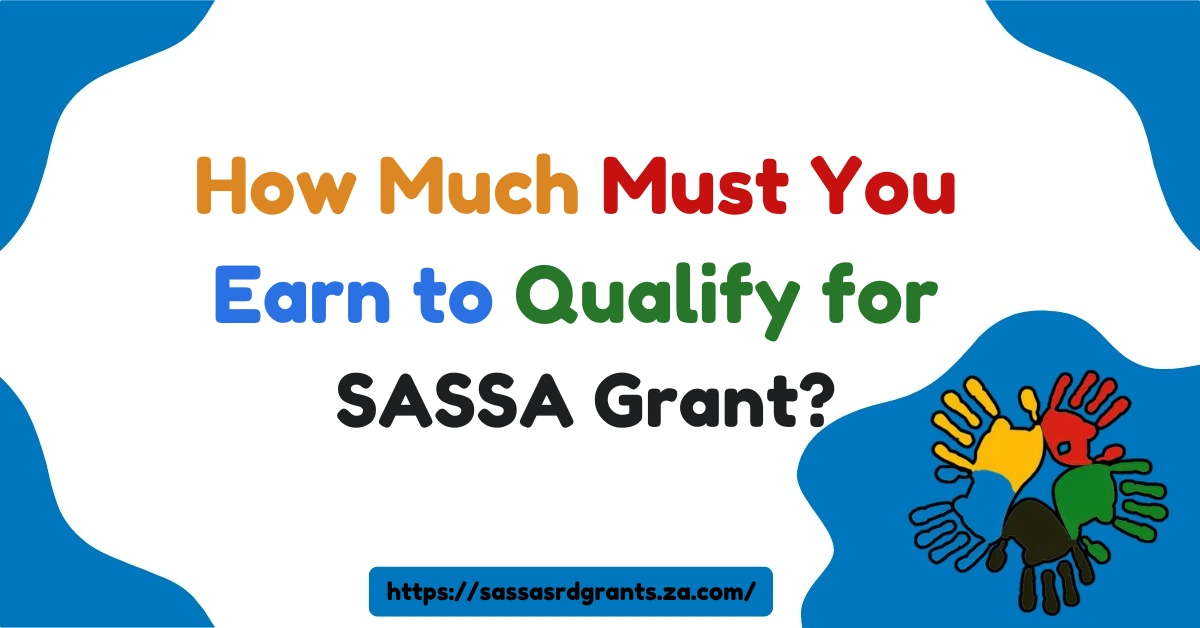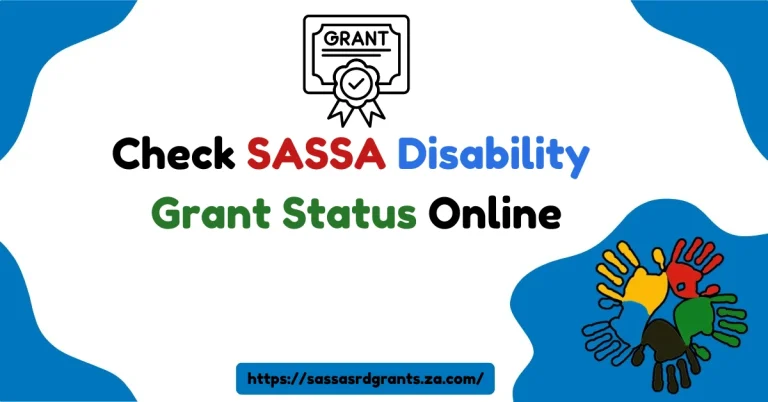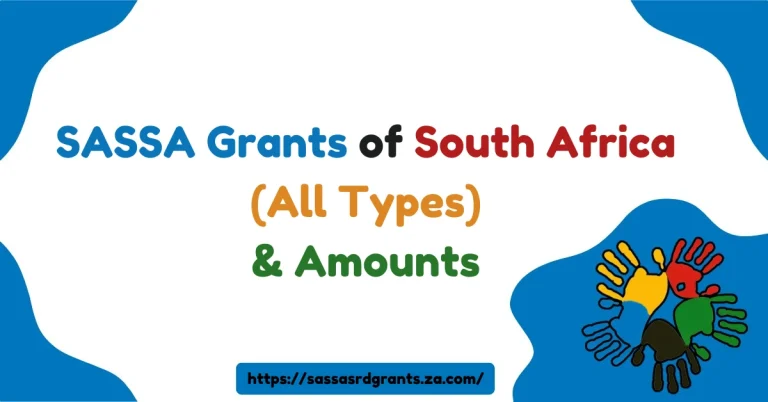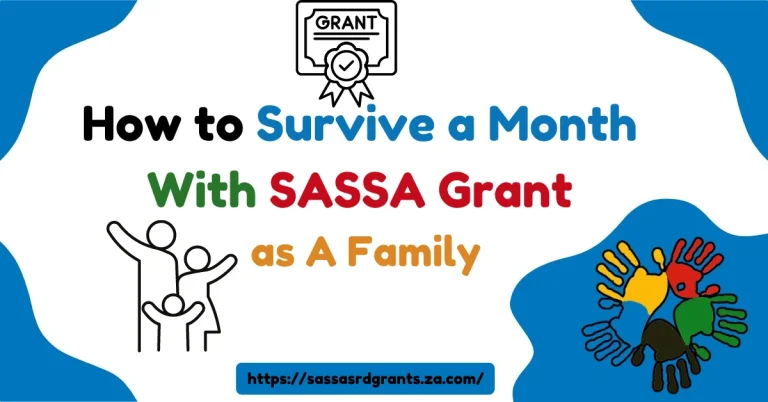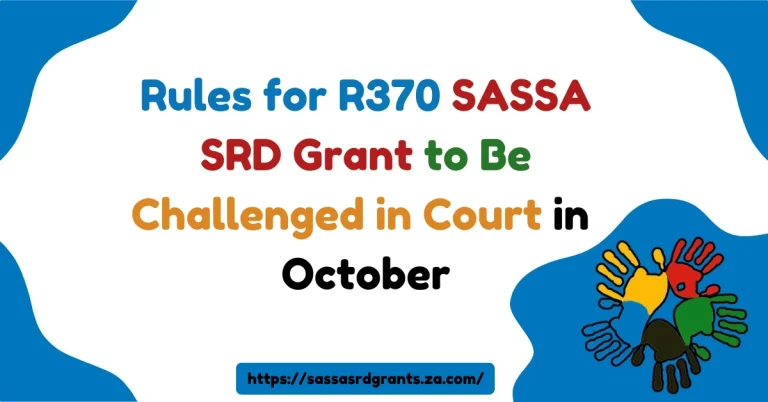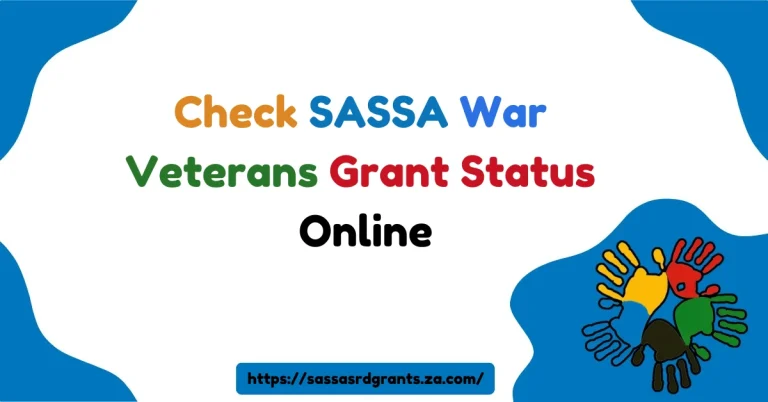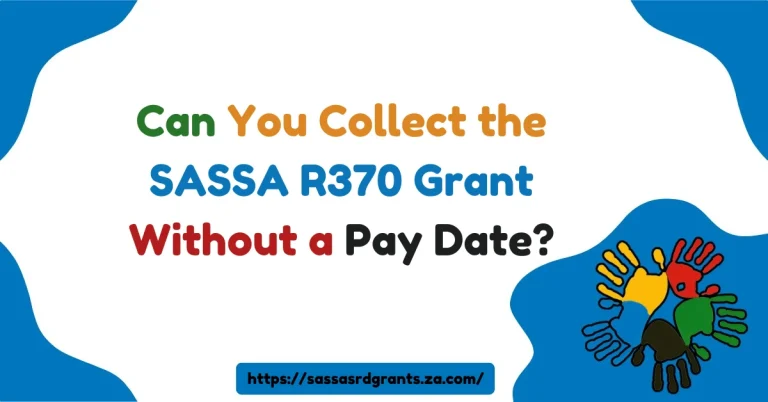How Much Must You Earn to Qualify for SASSA Grant?
I still remember the day I first tried to help a close family friend figure out if they could apply for a SASSA grant. The process sounded simple — until we realized the real challenge was understanding how much income you can have and still qualify. That’s when I decided: it’s time to break this down clearly for anyone facing the same confusion.
If you’ve been asking yourself, “How much must I earn to qualify for SASSA?” you’re not alone. This guide will explain the income limits, eligibility rules, and what you can do to make sure you don’t miss out on the financial help you deserve.
How Much Must You Earn to Qualify for SASSA Grant?(Quick Answer)
Want to know how much you must earn to qualify for a SASSA grant? This guide explains the latest income limits, eligibility rules, and essential requirements for every SASSA grant type. Whether you’re applying for a Child Support, Disability, or SRD R370 grant — get clear answers on income thresholds, assets, and application steps. Stay informed and avoid missing out on financial support when you need it most!
What Are SASSA Grants?
Let’s start with the basics: SASSA grants are financial support programs from the South African Social Security Agency. These grants exist to help people cover their living expenses when their own income isn’t enough.
Whether you’re raising a child, facing a disability, caring for someone with special needs, or retired — SASSA has different types of grants designed to help. Understanding which one applies to you is the first step toward getting the help you need.
Who Qualifies for SASSA Grants?
Before we jump into the numbers, let’s cover the ground rules. To qualify for most SASSA grants, you must meet some basic requirements:
- Be a South African citizen, permanent resident, or registered refugee.
- Live within the borders of South Africa.
- Not live full-time in a state institution (like a prison or state-funded care home).
- You must not already receive another social grant for yourself.
Think of these conditions as the foundation — even if your income meets the requirements, you must first check these eligibility boxes.
Income Limits: How Much Must You Earn to Qualify for SASSA Grants?
Now let’s break down the part you really came here for: the income limits for SASSA grants. These numbers are essential because even if you meet all the other conditions, your earnings must still fall within the allowed amounts.
Here’s a simple and clear table showing the maximum income limits for each SASSA grant:
| Grant Type | Monthly Income Limit (Single) | Monthly Income Limit (Married) | Annual Income Limit (Single) | Annual Income Limit (Married) |
|---|---|---|---|---|
| SRD R370 (Social Relief of Distress) | R 624 | N/A | N/A | N/A |
| Foster Child Grant | No income limit | No income limit | No income limit | No income limit |
| Child Support Grant | R 5,000 | R 10,000 | R 60,000 | R 120,000 |
| Care Dependency Grant | R 20,800 | R 41,600 | N/A | N/A |
| Old Age Grant | R 8,070 | R 13,450 | R 96,840 | R 161,400 |
| Disability Grant | R 8,070 | R 13,450 | R 96,840 | R 161,400 |
Social Relief of Distress (SRD) Grant – R370
The SRD grant was introduced to assist people who are going through immediate financial hardship. Right now, you can qualify for the SRD R370 grant if your income is R624 or less per month.
This grant was especially helpful during the COVID-19 pandemic, and although the situation has changed, the income rule remains the same.
Child Support Grant Income Limit
If you are raising a child and struggling to meet your household needs, the Child Support Grant might offer the help you need.
- If you are single, your income must not be more than R5,000 per month.
- If you are married, your combined household income should not exceed R10,000 per month.
This means that even if you work part-time or do odd jobs, as long as your total earnings stay below these limits, you may qualify.
Foster Child Grant Income Limit
Here’s some good news: the Foster Child Grant has no income limit. That’s right — whether you earn a little or a lot, you can still apply for this grant if you are officially caring for a foster child.
The focus here is not on your income, but on the child’s need for support and your legal status as a foster parent.
Care Dependency Grant Income Limit
If you are the parent or caregiver of a child with severe disabilities, the Care Dependency Grant can ease some of the financial pressure.
- As a single caregiver, your monthly income must be R20,800 or less.
- If you’re married, your combined household income cannot exceed R41,600 per month.
This grant is meant to ensure that the child gets proper care, even if the caregiver has limited income.
Older Persons Grant Income Limit
For those aged 60 or older, the Older Persons Grant (often called the Old Age Grant) offers financial support to help with basic living costs.
- If you are single, your earnings must be R8,070 per month or less.
- For married couples, the combined monthly income cannot exceed R13,450.
The annual income limit is R96,840 for singles and R161,400 for married couples. If your income is below these figures, you likely qualify.
Disability Grant Income Limit
If you’re unable to work due to a physical or mental disability, you may qualify for the Disability Grant.
The income limits here mirror those of the Older Persons Grant:
- Single: R8,070 per month or R96,840 per year.
- Married: R13,450 combined per month or R161,400 per year.
This grant ensures people with disabilities can maintain dignity and cover their basic expenses.
What Else Impacts Your SASSA Eligibility?
Income is just one part of the story. When you apply for a SASSA grant, your entire financial situation is reviewed, including:
- Marital status — Your spouse’s income is considered, even if they’re not applying.
- Number of dependents — More dependents can sometimes influence your application.
- Assets — Properties, cars, and savings are also counted.
Being honest about all of these will prevent future problems, as SASSA regularly conducts reviews to confirm eligibility.
How Does SASSA Calculate Your Income?
When SASSA reviews your application, they look at all your sources of money:
- Wages and salaries.
- Rental income.
- Investments and dividends.
- Private pensions.
- Maintenance payments (in some cases).
But some types of money are excluded:
- Medical aid reimbursements.
- UIF (Unemployment Insurance Fund) payouts.
- Employer contributions to pension funds.
This means the number on your paycheck isn’t the only factor — the total financial picture matters.
How to Apply for a SASSA Grant
The application process is simpler than most people expect, as long as you prepare the right documents.
Documents You’ll Need:
- A valid South African ID or passport.
- Proof of residence.
- Income proof — like payslips, bank statements, or affidavits.
- Child’s birth certificate (if applying for a child-related grant).
Where to Apply:
- Any local SASSA office.
- Selected post offices.
- Mobile SASSA units (in some rural areas).
- Online via the SASSA website (for some grants like SRD).
Tips to Help You Qualify
Applying for a SASSA grant isn’t complicated, but small mistakes can slow you down. Here are some simple tips:
- Always give honest income information.
- Update SASSA if your financial situation changes.
- Keep clear records of your income and expenses.
- Stay informed about annual income limit adjustments.
Common Misunderstandings About SASSA Grants
Let’s clear up some confusion I often hear from applicants:
- Part-time work doesn’t disqualify you automatically — only your total earnings matter.
- Owning a small home or car doesn’t always block your application — it depends on your full asset profile.
- Married applicants may still apply for some grants as individuals, especially if they live apart or handle finances separately.
How COVID-19 Changed SASSA Grant Rules
During the pandemic, the government introduced the SRD R370 grant to help millions of South Africans. While some rules have shifted back to pre-pandemic standards, others — like income thresholds — continue to evolve.
That’s why it’s essential to check the official SASSA website https://www.sassa.gov.za for the latest updates.
Frequently Asked Questions (FAQ’s)
Q: Can I receive more than one SASSA grant at the same time?
A: Generally, you can only receive one grant per person, but you can receive a grant for yourself and a separate one for a child or dependent.
Q: If my income increases, will I immediately lose my SASSA grant?
A: Not always. You must notify SASSA about income changes, and they will decide if your grant continues.
Q: Does owning a car disqualify me from getting a grant?
A: Not automatically. Assets like cars are considered, but it depends on the grant and your full financial situation.
Q: Can non-South Africans apply for a SASSA grant?
A: Permanent residents and refugees with valid documents can apply for most grants. Always check the latest rules.
Q: How long does a SASSA grant last?
A: It depends. Some grants, like the Old Age Grant, are long-term, while others, like the SRD grant, are short-term and reviewed regularly.
Final Thoughts
Understanding how much you can earn and still qualify for a SASSA grant is one of the most important steps in securing financial help.
✅ Different grants have different income limits.
✅ Your entire financial situation matters, not just your salary.
✅ Honesty and documentation are key to a successful application.
If you’re facing financial hardship, these grants can ease the burden. Always apply if you believe you meet the conditions — you might be surprised by how much help is available.
